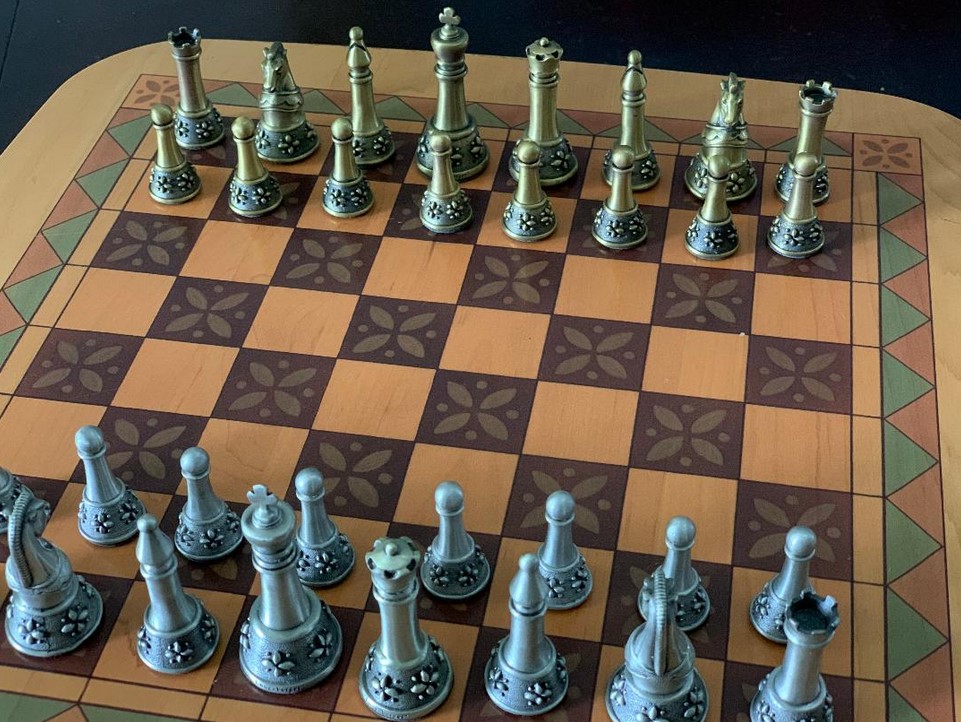Thinking on Your Own – Part 1: Chess and Complex Board Games (Activities to Build Reasoning, Problem Solving and Critical Thinking Skills)

We live in the most abundant period of human history. But that doesn’t mean our problems are all solved or that everything is easy. Every day we face a flood of information, misinformation and disinformation. And with even a moderate level of perspective we should be grateful for what we have, yet realize how much is uncertain - or simply not known. Skills that aid in navigating these waters are paramount.
Education is classically described as “learning how to learn,” or that a great education “prepares you for a lifetime of learning.” Being able to “think” or to “think on your own” has never been more important. Three core components of thought are reasoning, problem solving and critical thinking skills.
This is the first of a five part blog series in which we’ll look at educational activities that should be introduced (and strongly emphasized) for paradigm shifting increases in reasoning, problem solving and critical thinking skills. We’ll also be covering Speech and Debate, Coding, Building Toys to Makerspaces, and Sports in later blog posts; but this first blog centers on Chess and Complex Board Games.
Chess (and Complex Board Games)
Chess and complex board games differ from video games in that they are separate from reality - they work on a limited framework based on a strict set of rules. They “model” reality abstractly (and succinctly) instead of trying to make the experience virtually real with complexity. Mastering models allow us to analyze, consider what is most important, and what must be done to reach a solution. Models work or don’t work, showing success or failure.
Chess and other complex board games were an important part of my childhood. Thinking ahead and thinking quickly as I gained skill and experience were a fuel to get better and better. You can see that mental fire and self-motivation in a beginning chess player as well as a grand master – reasoning out the possibilities, finding ways to win and thinking ahead. You are quickly rewarded for your successes and humbled by failure.
Chess educates you in many ways as it:
- Strengthens your ability to see things from another’s perspective;
- Develops memory and pattern recognition;
- Allows you to enter a “flow state” where you’re all in – operating at peak performance on a challenging task;
- Elevates your creativity through pattern recognition, making connections, abstraction and divergence;
- Works your planning skills knowing that time is precious and indecision is not a decision;
- Is therapeutic in helping us experience and manage reactions to stress and challenges as they arise in a controlled environment;
- Exercises the brain and body systems – developing younger minds and reducing cognitive decline as you age; and
- Trains you for the long game – you realize early on that it will take a significant input of time to become a very good player (understanding delayed gratification and the value of progress toward long term goals).
Here’s your takeaway:
Who doesn’t want to break out a Chess Set, Monopoly or some other board game after reading about all these benefits? Find a way this winter to introduce your students or children to Chess.
Up Next: Speech and Debate
In our next blog of this series, we’ll cover the process of formal speeches and debate of an idea. But you don’t need to wait for me! Feel free to research ahead on your own and make progress teaching reasoning, problem solving and critical thinking skills through Speech and Debate.
Guest Blogger:
Bill Franklin, the CEO of Internet4Classrooms, is our guest blogger this month. He has been on the faculty at The George Washington University, has years of platform instructional experience, was a career Army Special Operations officer and also has decades of experience as a youth sports coach.
Search Internet4Classrooms

Custom Search






